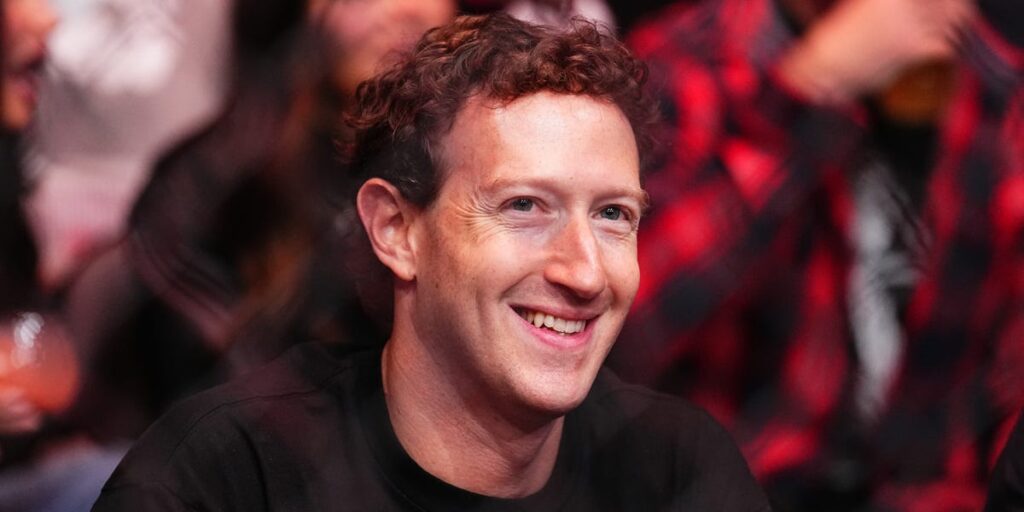Meta boss Mark Zuckerberg had a “crazy idea” in 2022 for Facebook — purge all users’ friends.
This came to light on Monday after the US government put Zuckerberg on the witness stand as it faced off against Meta in a landmark antitrust trial that could result in the break up of the social media empire.
In an internal 2022 email to the social network’s top brass, Zuckerberg — fearful that Facebook was losing cultural relevance — proposed his big idea.
“Option 1. Double down on Friending,” Zuckerberg wrote in the message that the government revealed during his testimony. “One potentially crazy idea is to consider wiping everyone’s graphs and having them start again.”
By “graphs” Zuckerberg meant Facebook users’ friends connections.
Tom Alison, the head of Facebook, responded with some hesitancy.
“I’m not sure Option #1 in your proposal (Double-down on Friending) would be viable given my understanding of how vital the friend use case is to IG,” Alison wrote, referring to Instagram.
Zuckerberg replied that he didn’t follow Alison’s concerns. He also raised another thought.
“Do you have a sense of how much work it would be to convert profiles to a follow model?” Zuckerberg asked in his reply.
Reminded of his idea while under questioning by a Federal Trade Commission attorney during day one of the trial, Zuckerberg said that Facebook never followed through with his most drastic plan.
“As far as I can tell, we never did that,” the Meta CEO and founder, who wore a suit and tie, said.
During his hours of testimony in a Washington, DC, federal courtroom on Monday, Zuckerberg said that Facebook has greatly evolved since he launched the platform more than 20 years ago and that its main purpose isn’t really to connect with friends anymore.
The FTC argues that Meta monopolizes apps that share content with friends and family.
“The friend part has gone down quite a bit,” Zuckerberg testified.
The Facebook feed, Zuckerberg said, “has turned into more of a broad discovery and entertainment space.”
Zuckerberg, who was the first witness called after the trial opened on Monday, is expected to be questioned for as long as seven hours.
The FTC argues in its case that Meta, then called Facebook, violated US competition laws when it acquired Instagram in 2012 and WhatsApp in 2014.
Meta’s $1 billion acquisition of Instagram and $19 billion acquisition of WhatsApp were intended to box out competition and dominate the social media sphere, the FTC says. The government argues these acquisitions were part of Meta’s “buy or bury” strategy to maintain market dominance.
The FTC said in court papers that Meta has maintained its monopoly position “in significant part” by pursuing Zuckerberg’s strategy outlined in an internal 2008 email in which the CEO wrote, “It is better to buy than compete.”
“Meta has for many years reaped massive economic profits beyond what you would expect to see in a competitive environment,” FTC attorney Daniel Matheson said in his opening statement earlier Monday.
Mark Hansen, an attorney for Meta, argued in his opening statement that the government’s case amounts to a “grab bag of FTC theories at war with the facts and at war with the law.”
Hansen slammed the FTC’s lawsuit against Meta as “misguided” as he said that the acquisitions of Instagram and WhatsApp were not unlawful. There is no monopoly, Hansen argued, saying that Meta faces massive competition from rivals TikTok and YouTube.
The case could be one of the most consequential antitrust trials in years. If FTC regulators have their way, Meta could be forced to sell off WhatsApp and Instagram.
The antitrust trial is expected to last up to eight weeks. Judge James Boasberg will be the sole decider on whether Meta violated competition laws as there is no jury.


